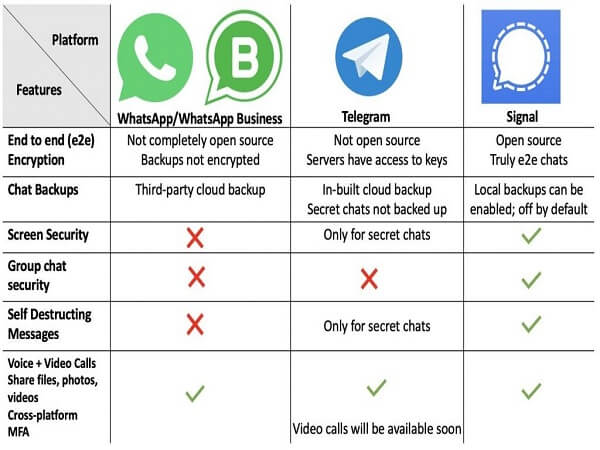

Turning to Telegram, the Dubai-based app uses its own encryption scheme called MTProto, and with 700 million active users, can be considered a direct rival to WhatsApp.

As Signal grows, we should see a larger amount of malicious activity there as well. To be fair though, WhatsApp has a far larger user base than Signal and therefore serves as a more attractive target for malicious actors. For example, Jeff Bezos's account was hacked via a malicious video message, and WhatsApp's cloud-based backup feature has held flaws that enabled the FBI to access Paul Manafort's conversations. Over the years, several groups have been able to hack into specific WhatsApp accounts, calling into question their overall security.
Telegram vs signal code#
With that being said, much of WhatsApp's code base is closed-source and therefore hard to directly audit. Various third-party audits by Oxford University researchers (among others) have concluded that the protocol is cryptographically secure. Signal Encryption was first developed in 2013 for a precursor of Signal, but has since been adopted by others, including Facebook and Microsoft, for their secure video and text messaging applications. Both Signal and WhatsApp use the same encryption protocol, Signal Encryption, which is widely considered best in class. To help you decide which app best meets your needs, we've provided a side-by-side comparison exploring the real differences between WhatsApp, Signal, and Telegram.įirst things first. However, popular beliefs aside, the question remains: are Signal and Telegram really more secure than WhatsApp? Over the last few years, adoption rates of rival messaging apps, Signal and Telegram, have skyrocketed, placing WhatsApp's dominance into question.


 0 kommentar(er)
0 kommentar(er)
